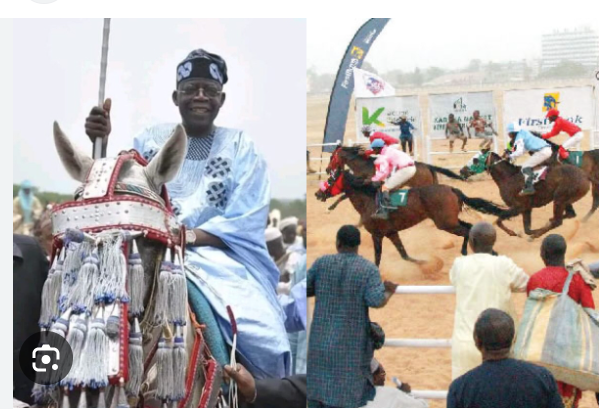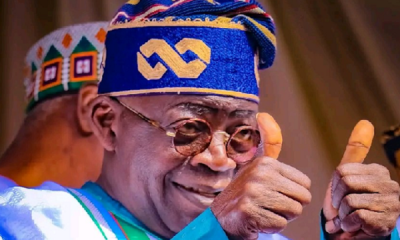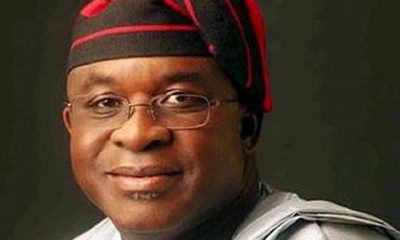Opinion
How Life Will Look Like After The Protest
By Emmanuel Aziken

Nigeria has all of a sudden been taken over by a debate about protest. The frenzy immediately brings to mind the stinging rebuke on the nation by the president of TotalEnergies, Patrick Pouyanne who said that Nigerians love to debate at the expense of the collective good.
“You love to debate… But if you look at what happened, because of these debates, there has not been a single exploration in Nigeria for 12 years.”
Apart from the serial debate on the Petroleum Industry Act, PIA, referred to by Pouyanne, contemporary and ancient chroniclers of Nigerian history will recall debates on Third Term, IMF, presidential or parliamentary system, right of cows, restructuring, among some that also continue to effuse into the polity from time to time.
It is thus interesting that Nigerians have in the last few weeks been fixated on the debate about Protest. Should we protest or should we not?
The debate about protest suddenly became an issue after it emerged that a group of yet-to-be-fully-exposed Nigerians planned to demonstrate against bad governance from August 1 to 10.
Remarkably, since news of the protest emerged, the polity has been engulfed with warnings mostly coming from administration officials and enablers warning against the protests. The suggestion that flows from their articulations is one of fear.
They have accused the protest organisers of wanting to instigate anarchy in the land.
Bayo Onanuga, special adviser to the president on communications who escalated the debate to xenophobic dimensions called out those he called supporters of Peter Obi of wanting to resume the #EndSARS protest from where they stopped in October 2020.
Following him, former pastor, former Atiku man, former canvasser of Peter Obi-must-be-president, Reno Omokri amplified the bigotry with a post calling on the Lagos State government to provide transport for those who want to protest to go to their states.
Remarkably, the Igbo who Onanuga and Omokri insinuate as wanting to destroy Lagos by resuming the EndSARS protest are about the only ethnic configuration to have through their highest socio-cultural body to dissociate from the protest.
Ohanaeze Ndigbo has asked Igbo everywhere to stay away from the protest and give President Bola Tinubu more time to get his act together.
On the contrary, Afenifere sticking to its legendary progressive inclinations has affirmed the constitutional right of the protesters to ventilate themselves on the issues affecting them. Remarkably, administration officials and enablers have kept mum on the contradictions in their assertions.
Perhaps, the only well-known public individual to associate himself with the protest is revolution champion and crusader, Omoyele Sowore, a two-time presidential candidate.
Remarkably, the Department of State Services, DSS, and Onanuga who claimed to know the identity of the organisers of the protest have kept mum on this quarter.
The assertions from the corridors of power and the DSS are that the protest is political and directed at regime change.
Such assertions betray the fact that Nigeria is a political entity with political actors fully engaged in pushing their interests. Of course, no one expects the true political opposition to make the ruling All Progressives Congress, APC to be comfortable, whether it is doing good or bad.
It is worthy of commendation that the leader of the party, President Bola Ahmed Tinubu while receiving the new United States ambassador to Nigeria, Robert Mills jr, on Thursday buttressed his gallantry as a protester. Senator Shehu Sani had earlier lifted him even more as a protest organiser, financier, and grandfather of protesters.
President Tinubu’s assertion lies within the constitutional framework that guarantees every Nigerian the right to assemble and express themselves.
Indeed, the president could not have said otherwise before the top US diplomat given the support that he, Tinubu, and other pro-democracy enthusiasts received from the US during the battles against the military regime of Gen Sanni Abacha.
President Tinubu like other more refined administration officials are calling on the protesters not to allow their agitation to be swallowed up by the rage of anarchists.
That is indeed a good call. Indeed, it behoves on the administration to protect the protesters and ensure that civility endures through whatever they do.
But who are the protesters?
The claim by the DSS and some administration officials that they have identified the protesters is something that nearly every Nigerian is taking with a pinch of salt.
However, beyond the identity of the organisers of the protest are the issues fuelling the agitation for a protest. The issues include hunger, bad governance at all levels, insecurity among many others.
These are issues that touch all including APC members and their critics. Those who are not particularly touched are the political office holders who are riding on the goodwill of taxpayers to buy imported SUVs to navigate on the bad roads in the country and such other benefits they get from the fringes of government.
That Nigerians want to ventilate themselves on the issues that concern them as enshrined in Section 40 of the Constitution is an inalienable right.
Such rights must not be vitiated by protesters who resort to criminality in destroying public or private infrastructure.
However, we must move from this debate on protest to debate the issues that are being brought to the fore. Indeed, that is one way that administration sympathisers and all those who have been canvassing against the protest can defuse the debate on the planned days of rage as so-called. It is to talk about the issues on the agenda of the protesters that will transform the lives of all Nigerians.
Indeed, if that persuasion sails through Nigeria will become a better country where issues will be synthised outside political consideration.
Send Us A Press Statement Advertise With Us Contact Us
And For More Nigerian News Visit GWG.NG











